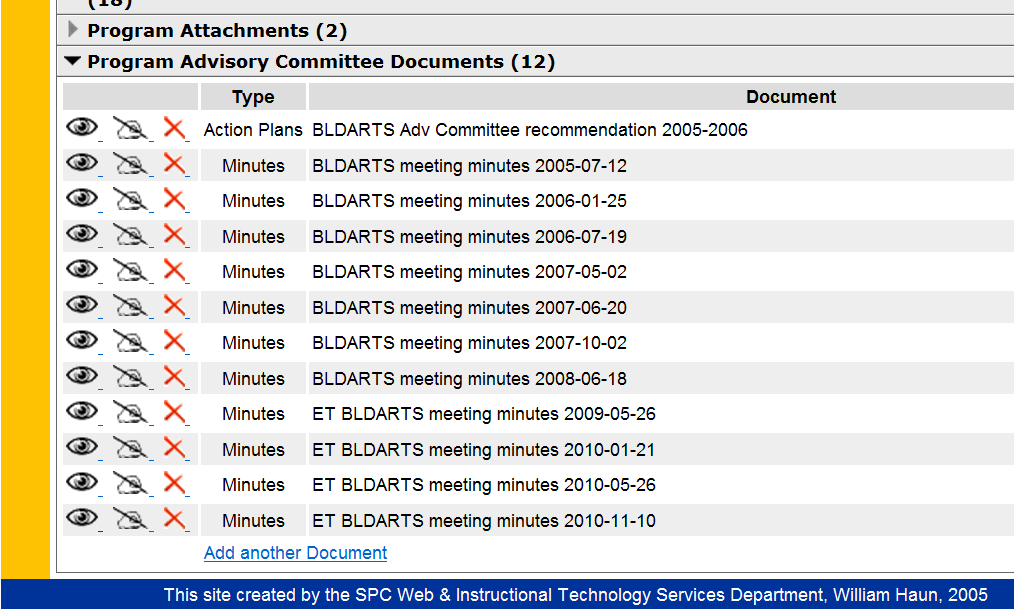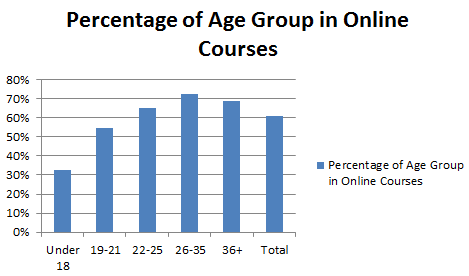Federal Requirement 4.2
Program Curriculum
The institution’s curriculum is directly related and appropriate to the mission and goals of the institution and the diplomas, certificates, or degrees awarded.
Judgment of Compliance: Compliance
Narrative/Justification for Judgment of Compliance:
Executive Summary
St. Petersburg College’s institutional mission is to “Promote student success and enrich our communities through education, career development and self-discovery.” This mission is in compliance with the mission of Florida's State Colleges as stated in Florida Statute: “...to maximize open access for students, respond to community needs for postsecondary academic education and career degree education, and provide associate and baccalaureate degrees that will best meet the state’s employment needs...” In order to fulfill its mission, St. Petersburg College offers Associate of Science degrees with embedded certificates, Associate of Arts degrees, and selected Baccalaureate programs and certificates, all of which focus on identified workforce needs in the local community and state. The curriculum that comprises these programs undergoes a rigorous internal and external approval process and undergoes continuous review and evaluation.
Degree Programs
St. Petersburg College's (SPC) certificate and Associate of Science (AS) degree programs provide students with the knowledge and abilities that prepare them for success in the workplace. College certificate programs prepare students for employment in specific occupations and offer an intermediate completion point for students. These lower division certificates are embedded within the AS degrees, providing an easy pathway towards AS degree program completion for students. The AS degree programs include a strong general education component, as well as the technical knowledge and skills required for career success.
Curricula for certificate programs are developed and reviewed in the same manner as the technical portion of AS degree programs. The Florida Department of Education provides comprehensive guidelines and policies regarding Career and Technical Education Frameworks and Performance Standards. Faculty with expertise in their fields develop all courses in both certificate and AS degrees with additional guidance from industry Advisory Committees. Each program maintains close contact with the industry that it serves through frequent meetings with businesses and industry and at least two formal meetings per year of the Advisory Committee. A comprehensive Advisory Committee Manual provides guidance to Advisory Committee members and helps insure the effectiveness of our 38 Advisory Committees. Meeting summaries are housed in the Educational Outcomes website. (See example for Engineering and Building Arts Advisory Committee Meeting)

Our Associate of Arts (AA) degree prepares students for further education at the upper division level. The university transfer degree (AA) is closely articulated with both SPC’s upper division programs and the State University System (SUS) programs. Graduates of AA degree programs are guaranteed admission into one of Florida’s public four-year universities as delineated in the Statewide Articulation Manual for Florida State Colleges and Universities.
Our Baccalaureate degrees provide expanded access to higher education in this community. Our first baccalaureate degrees were offered in 2002 and were developed in response to a critical need for nurses and other allied health practitioners, teachers, technologists, paralegal, and public safety professionals. The need for health care professionals exists not only in our local community, but statewide employment opportunities are also available (See FL DEO Employment Projection Spreadsheet). For example, our degree program provides the bridge from Registered Nurse (RN) to a Bachelor’s Degree in Nursing (BSN) and is a stepping-stone to the Master’s degree in nursing to prepare nurse educators, one of the critical links to increasing the nursing workforce. The dramatic growth in annual graduates since the inception of baccalaureate programs at SPC clearly indicates that providing local access to higher education in our community is desired. In the academic year 2010-2011, the College graduated 1033 students with baccalaureate degrees (p. 48), twice as many as graduated in 2006-07, and ten times as many as our first year of graduates in 2003-04.
Online courses extend the College’s curricula to students who may be unable to attend face-to-face classes and underpin our efforts to maximize access to higher education for our constituents. The curriculum in online courses is identical to the curriculum in face-to-face offerings. Students’ access to higher education may be limited by their ability to travel to campus, particularly in Pinellas County, the state’s most densely populated county. Work and family commitments further constrain our students’ ability to participate in higher education. The anytime, anyplace nature of online classes allows students, who would otherwise be unable to enjoy the benefits of higher education, to take classes while working and caring for their families.
As illustrated in the following chart, in 2012, slightly more than 61% of our total student body took at least one online class. However, almost 73% of the 26 to 35-year-old group took online courses, more than any other age group. By contrast, only 33% of our under 18 students took an online course, demonstrating the need for working adults to have online options available.

As such, the vast majority of SPC degree programs are offered in the “student choice” modality (see program modality list), defined in FR 4.8.1, FR 4.8,2, and FR 4.8.3 as programs whose courses may be offered in more than one modality to meet student needs.
Approval Process
The Board of Trustees Rule 6Hx23-3.04 on Course Descriptions and College Programs establishes the process for approving new degree programs. Requests for new programs may come from faculty, business and industry leaders, Deans and other administrators, the Board of Trustees, or members of the community, but the development of curriculum is the responsibility of faculty. Every credit course and program, regardless of modality, is approved by faculty and recommended through the curriculum process. Each request is subjected to a rigorous and comprehensive vetting process and a thorough needs analysis. New programs must be approved by faculty, the Deans of the College, the Chief Academic Officer, the President of the College, and the Board of Trustees. The entire process is outlined in the Curriculum and Instruction Manual. In addition, programs must be approved by the Florida Department of Education and must meet statutory requirements of the State of Florida. Finally, many of our programs must also meet the standards of national accrediting agencies.
In early 2013, St. Petersburg College implemented CurricUNET, an electronic curriculum management system, to better facilitate the review, approval, and management of curriculum proposals. The existing approval processes were built into the system as workflows and enable submitters and reviewers to follow a curriculum proposal through every step of the approval process. The level of approval required depends on the classification of a proposal, which is initially determined by the submitter. Curriculum proposal classifications include:
- Create New Program;
- Program Modification (includes deactivating programs);
- Create New Course;
- Course Modification (includes deactivating courses).
New programs and courses require a more rigorous review process, with multiple approval points that begin with faculty driving process. The approval process continues with review and approval by the following governing groups: the Provost/Deans Council, Academic Affairs Council, Strategic Issues Council/Executive Leadership, Curriculum Services, Curriculum and Instruction (C&I) Committee, and the Board of Trustees.
Modifications to programs and courses can involve major modifications and minor modification. Examples of major modifications include adding a new subplan to an existing program; adding a prerequisite to a course that is shared by multiple programs; requesting to increase the number of credit hours associated with a course due to content changes; or changing program outcomes or course outcomes due to changes in State Frameworks (for AS degrees and certificates). Minor modifications typically involve changes that have little or no impact on programs outside of the academic department that is submitting the request, such as updating language in a course outline to reflect advancements in the profession (e.g., technology), or changing the name of the program administrator on a course of study. Submitters can request to have minor modifications go through a “fast track” approval process (See process outlined in C&I Sub-Committee Summary) because the changes do not impact the content, quality, or intent of a course or program.
Each committee, group, and individual, who has an approval role, is responsible for reviewing curriculum submissions against four tenets that directly support SPC’s curriculum philosophy of promoting student success: Academic quality, structural integrity, articulation assurance, and student focus. Faculty members develop and revise curriculum according to these standards and program Deans review curriculum submissions against these standards. The Curriculum Services Office, which processes all curriculum submissions, conducts a preliminary review of proposals, paying specific attention to structural integrity and articulation assurance. The C&I Committee, which is comprised of faculty representatives, reviews submissions with a close eye on academic quality and student focus.
Supporting Documentation
In order to preserve the integrity of the supporting documentation in case of updates occurring between the submission of this document and the review, the narrative above links to pdf versions, whereas live links are included below.
- Florida Statute 1001.60
- Florida Career and Technical Education Frameworks and Performance Standards
- Advisory Committee Manual
- Advisory Committees
- Educational Outcomes
- Engineering and Building Arts Advisory Committee Meeting
- Statewide Articulation Manual
- Baccalaureate Degrees
- Statewide Employment Opportunities
- FL DEO Employment Projection
- 2011-12 SPC Fact Book
- Program Modality List
- Federal Requirement 4.8.1 Distance and Correspondence Education - Student Authentication
- Federal Requirement 4.8.2 Distance and Correspondence Education - Privacy
- Federal Requirement 4.8.3 Distance and Correspondence Education - Charges
- SPC BOT Course Descriptions and College Programs Rule 6Hx23-3.04
- Curriculum and Instruction (C&I) Manual
- Florida Statute 1004.03
- CurriUNET Workflows
- C&I Sub-Committee Summary
